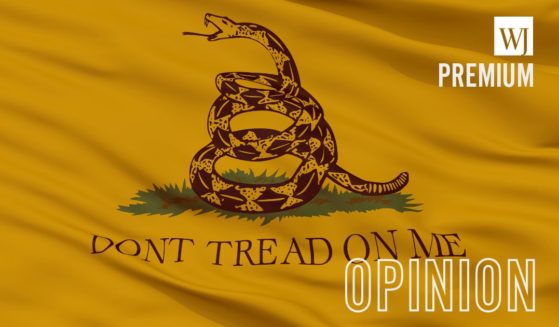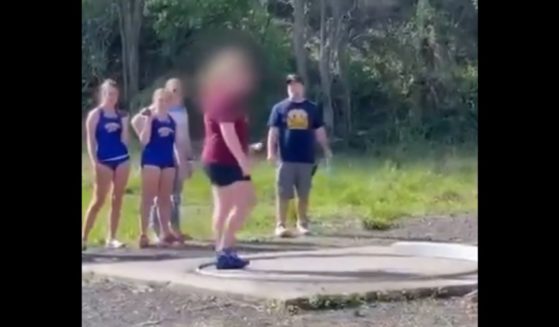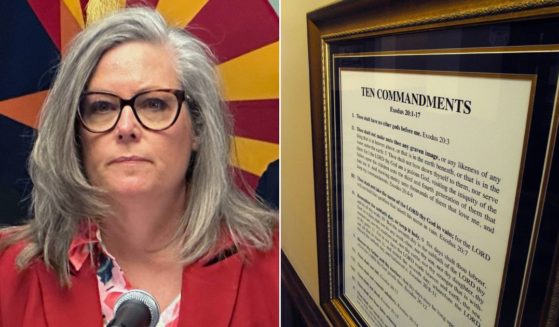Biden Admin Blasted for 'Quietly' Changing Rule on Water on Last Day of the Year
With the apparent goal of protecting American wetlands, the Biden administration has revised the legal definition of the term “waters of the United States,” or WOTUS, bringing the ire of many congressional Republicans.
This move by Biden’s Environmental Protection Agency comes while an important case regarding the EPA is being heard by the Supreme Court.
According to the New York Times, the revised definition reverts to language from before 2015, when the Obama administration made big changes that led to a multitude of legal challenges.
The new EPA rule clarifies what bodies of water are subject to federal jurisdiction and what wetlands are excluded from federal regulation, but critics see it as a federal power grab that gives the EPA far too much discretion.
As reported by CNBC, the rule also revokes past changes made by President Trump to lessen the EPA’s regulating ability.
Members of the Congressional Western Caucus released a statement condemning the EPA’s last-minute rule change, arguing that it gives the EPA far too much discretion and power.
“This rule is yet another bureaucratic attack on rural America,” said Caucus Chairman Dan Newhouse of Washington state.
Of note, the Congressional Western Caucus lamented the timing of the move, as it was “quietly released on the last business day of the year before a major holiday.”
“Western Caucus Members and the rural communities we represent have consistently called on the Administration to provide regulatory certainty for farmers, ranchers, small businesses, and landowners – most recently, requesting that the Administration not move forward with rulemaking until the Supreme Court has ruled on Sackett v. EPA.”
Vice Chair Mariannette Miller-Meeks of Iowa stated, “The Obama WOTUS rule drastically expanded the jurisdiction over bodies of water like streams and ponds leaving large swaths of Iowa land in the hands of the federal government…I am extremely disappointed in the Biden Administration’s decision to finalize a similar version of this failed rule which will have terrible consequences, for our farmers, ranchers, and landowners in Iowa.”
“Today’s announcement by the Biden Administration on their new rule for Waters of the U.S. (WOTUS) is disappointing. This rule is both poor policy and badly timed,” said David Rouzer of North Carolina.
“It is another example of this Administration’s determined adherence to the demands of environmentalists at the expense of hard-working Americans.”
EPA assistant administrator Radhika Fox explained the rationale for these changes in a Times interview.
“I think we have found a middle ground that creates as much clarity as possible,” she said.
“I am hopeful that this is the one that will stand the test of time.”
By simplifying the definition to its pre-Obama status, it would lessen the legal conflicts over what waterways are federally protected by the Clean Water Act according to the EPA’s reasoning.
The Obama-era changes were lambasted by critics as overly-restrictive and hazardous to both farmers and businesses.
President Donald Trump repealed these changes and instituted more farmer-friendly reforms, raising the ire of environmentalists and causing a cascade of legal battles.
This move by the Biden EPA is being seen by many as a preemptive measure due to a case being heard by the Supreme Court; Sackett v. Environmental Protection Agency, mentioned by Congressman Newhouse in his statement.
The plaintiffs, Michael, and Chantell Sackett attempted to build a home in the panhandle of Idaho, only to be stopped by the EPA, who said that they were building on a federally protected wetland.
The Sackett’s lawyer, Damien Schiff, is not concerned about the EPA’s new rule affecting the case.
“It really is just a stopgap measure,” he said.
If the Supreme Court rules in favor of the Sacketts, it could greatly hinder the federal government’s ability to regulate wetlands across the country.
“Why does every Democrat administration need to make a rule giving the federal government more power over farming and private property?” asked Doug LaMalfa of California.
“The federal government doesn’t need to regulate puddles, ditches, seasonal creeks, or culverts. All this rule does it make it more difficult to grow food or build anything.”
While the EPA has assured critics that it is not abusing its power, the new rule put in place on the last workday of the year may give them greater ability to regulate property, and the sneaky way the rule was implemented has raised red flags.
Until the Supreme Court makes its decision on the Sackett matter, these changes are likely to stay, at least as a stopgap.
Truth and Accuracy
We are committed to truth and accuracy in all of our journalism. Read our editorial standards.












